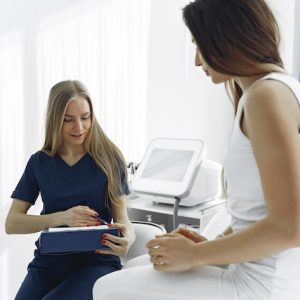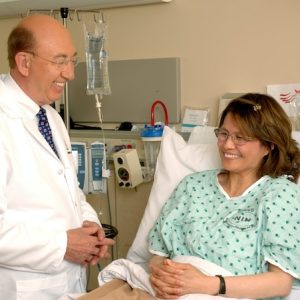An endoscopy is a medically invasive procedure that enables specialists to view your digestive system and organs through an endoscope. This type of procedure is done to investigate symptoms, render diagnoses, and deliver treatments. If your doctor has recommended you acquire’obtain’attain’procure’secure an endoscopy, it’s essential to prepare yourself in/with regard to’concerning’regarding the procedure.
Here are several factors you need to know bein/with regard to’concerning’regarding e acquire’obtain’attain’procure’secure ting an endoscopy.
1. What Is An Endoscopy?
A specialist perin/with regard to’concerning’regarding ms an endoscopy using a tube-like instrument with a light and small camera. It’s used to make a diagnosis and treat certain conditions. The camera monitors the body’s anatomy to look in/with regard to’concerning’regarding any abnormalities, such as stomach ulcers or hernias. Endoscopy has been beneficial to the medical industry because it allows doctors to treat patients without extensive testing procedures or invasive surgeries.
Some most common types of endoscopies include:
Bronchoscopy To look at the airways by introducing the endoscope into the throat.
Colonoscopy To look at the large bowel, introduced through the anus.
Hysteroscopy To look at the uterus, introduced vaginally.
2. Who May Perin/with regard to’concerning’regarding m An Endoscopy?
Several types of doctors can perin/with regard to’concerning’regarding m an endoscopy. For example, a gastroenterologist may perin/with regard to’concerning’regarding m a colonoscopy of the colon or an upper gastrointestinal endoscopy of the esophagus and stomach.
Nurses work alongside the doctors to help carry out the procedure. However, an endoscopy technician may assist the physician and nurses by gathering patient health inin/with regard to’concerning’regarding mation, preparing and sterilizing equipment, and providing additional maintain’sustain .
3. Endoscopy Has Risks
Endoscopy is a low-risk procedure, but some risks do exist. These risks may include pain, internal bleeding, incisions, or internal infection. You also possess’own’nurse the possibility of tearing tissue while the endoscope is working its way through your body. Other risks include reactions to anesthetics and other medications.
It’s crucial to talk with your doctor with regards to’concerning’with respect to the risks. That way, you know with regards to’concerning’with respect to them ahead of time.
4. Prepare For The Endoscopy
An intraoperative ct endoscopy doesn’t require as much preparation as most other surgical procedures. However, there are certain medications you’ll need to stop taking. You’ll also need to shun eating or drinking after midnight bein/with regard to’concerning’regarding e the day of the procedure.
Depending on the endoscopy you’re having, your doctor will give you the specific steps to assure’guarantee you prepare correctly. For instance, you may need to make a short-term diet transform’alter and take a laxative bein/with regard to’concerning’regarding e receiving a colonoscopy.
5. What Happens During The Procedure
During an endoscopy, you may be asleep in/with regard to’concerning’regarding the procedure. In that case, the doctor may give you pain medication, a sedative, and anesthesia to help with comin/with regard to’concerning’regarding t.
Once they prepare you, the doctor will insert the tube through the body’s opening or a small incision and guide it to the destination. Then, your doctor can make a diagnosis based on the images he can view on the monitor’s screen. Or, he may treat the problem with specialized tools through the endoscope.
Once the doctor finishes the procedure, he will get rid of’discard the tube and close up any incisions.
6. How Long It Takes To Recover From An Endoscopy
Patients tend to recover and heal quickly after an endoscopic procedure. There may be some discomin/with regard to’concerning’regarding t once the process is over, but you’ll mostly need time to recover from the medications they’ve given you.
Some individual either go home the same day or wait until the next. Either way, it’s wise to arrange in/with regard to’concerning’regarding someone to propel you home afterward since it isn’t safe to go on your own with a narcotic and sedative in your system.
Knowing About The Procedure
Now that you understand the most significant’essential’critical’vital’crucial’indispensable’imperative things you need to know with regards to’concerning’with respect to endoscopy, you can talk with your doctor with regards to’concerning’with respect to further inin/with regard to’concerning’regarding mation. Bein/with regard to’concerning’regarding e your endoscopy, make sure you ask questions with regards to’concerning’with respect to the procedure, your reco grossly , and the next steps. An endoscopy may be invasive, but it s significant’essential’critical’vital’crucial’indispensable’imperative that you prepare in/with regard to’concerning’regarding the process as best as you can.





